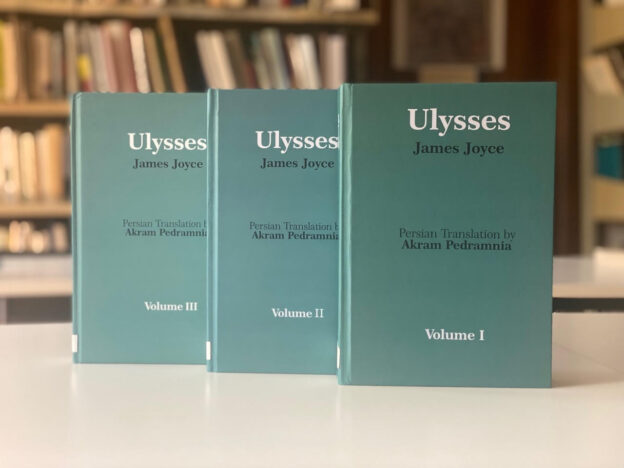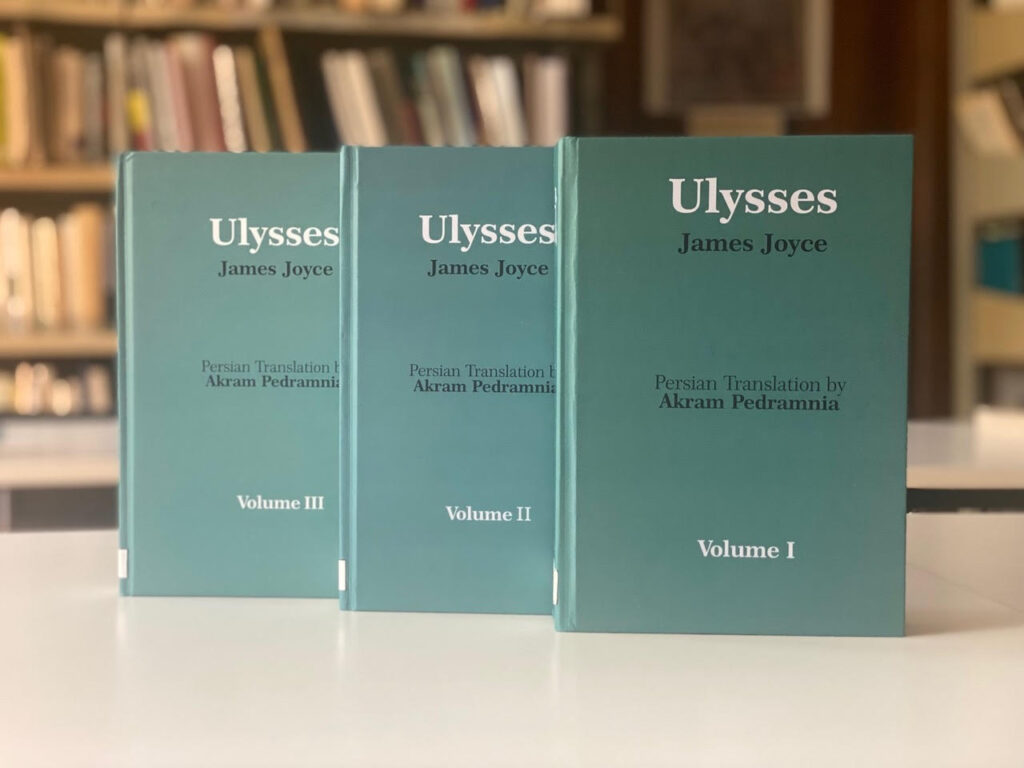Joyce Translation Scholarship and Looren Residency 2020
Akram Pedramnia
Ulysses Vol. 1-3, Chapters 1-12 (Persian Transl.)
About the Author
Akram Pedramnia is an Iranian-Canadian writer and translator. Apart from contemporary novels, she has translated several modernist classics, such as Scott Fitzgerald’s Tender is the Night or Nabokov’s Lolita, and currently she is working on Ulysses. Akram is also the author of four novels in Persian and a forthcoming novel in English. [Taken from: UZH]
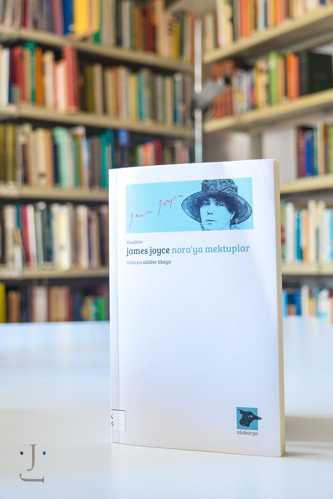
Date: 2018
ISBN: 9786059315715
Nilüfer İlkaya
Letters to Nora (nora’ya mektuplar)
Nilüfer İlkaya’s nora’ya mektuplar is a Turkish translation of Joyce’s letters to Nora Barnacle.
About the author
Nilüfer İlkaya is a freelance writer and literary translator from English to Turkish. She received a translation grant from Literature Ireland for her 2016 translation of James Joyce’s Dubliners. She was working from 3 May to 3 June 2018 at Zurich’s James Joyce Foundation on a new translation of A Portrait of the Artist As a Young Man. [Taken from: Looren]
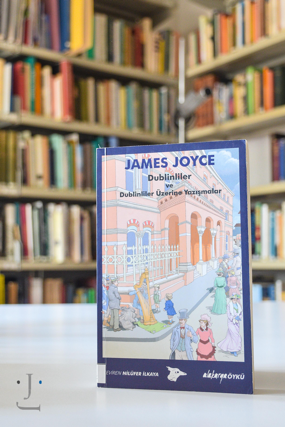
Date: 2016
ISBN: 9786059315289
Nilüfer İlkaya
Dubliners (Dublinliler ve Dublinliler Üzerine Yazışmalar)
Dublinliler ve Dublinliler Üzerine Yazışmalar offers a Turkish translation of Joyce’s Dubliners.
About the author
Nilüfer İlkaya is a freelance writer and literary translator from English to Turkish. She received a translation grant from Literature Ireland for her 2016 translation of James Joyce’s Dubliners. She worked on a new translation of A Portrait of the Artist As a Young Man at Zurich’s James Joyce Foundation in 2018. [Taken from: Looren]
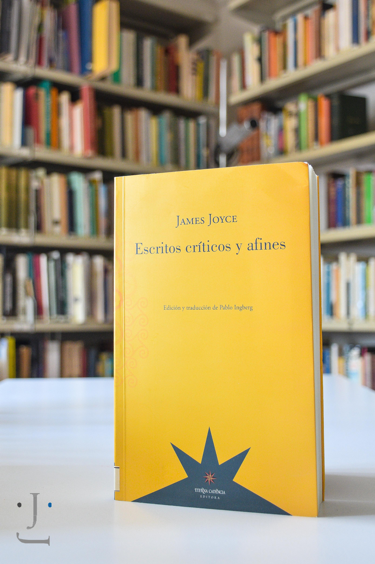
Date: April 2018
ISBN: 9789877120882
Pablo Ingberg
Joyce, James Escritos críticos y afines
An unprecedented work, which recovers those aspects, resources and authorial operations that make Joyce’s writing one of the most relevant and significant in universal literature.
The careful translation of Pablo Ingberg tries to reflect the oddities, inaccuracies and errors of Joyce’s writing –which had been respected in the original editions but not in the translations – with the intention of the reader experiencing something similar to what he experiences. [Taken from: Eternacadencia]
About the author
Pablo Ingberg, born in Dolores (AR) in 1960, is a writer, editor and translator of over 80 classics from ancient Greek, Latin, English and lately from Italian. [Taken from: Pabloingberg]
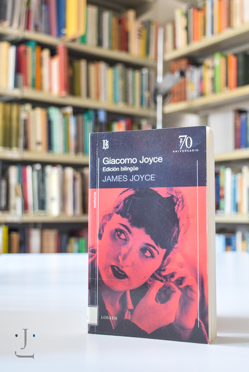
Date: 2013
ISBN: 9789500399470
Pablo Ingberg
Giacomo Joyce: edición bilingüe
This bilingual edition of Giacomo Joyce was translated by Pablo Ingberg.
About the author
Pablo Ingberg, born in Dolores (AR) in 1960, is a writer, editor and translator of over 80 classics from ancient Greek, Latin, English and lately from Italian. [Taken from: Pabloingberg]
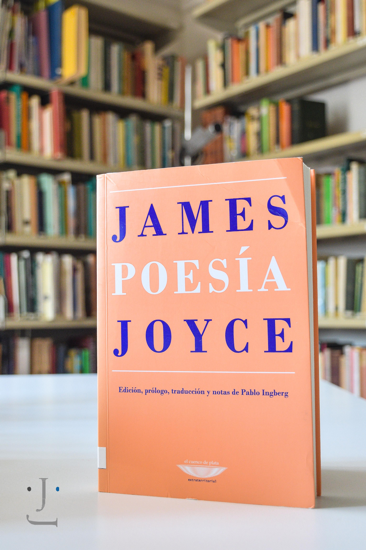
Date: 2018
ISBN: 9789874489036
Pablo Ingberg
James Joyce: Poesía
A compilation and translation of Joyce’s poetry into Spanish.
The Friends of the Zurich James Joyce Foundation Scholarships
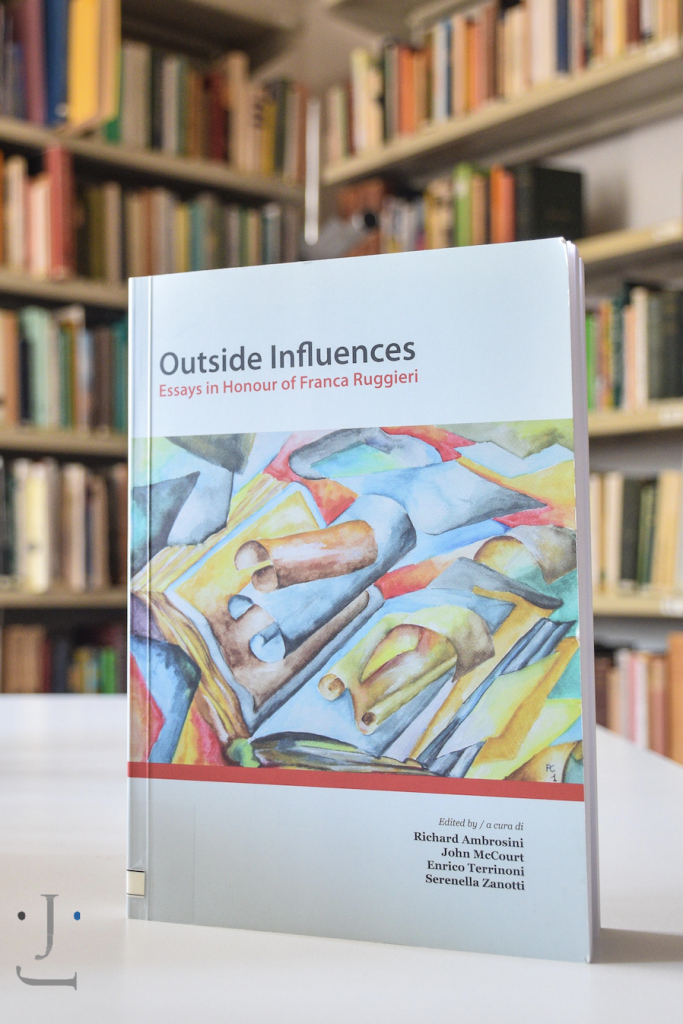
Date: 2018
ISBN: 9781350014244
Michelle Witen
James Joyce and Absolute Music
Drawing on draft manuscripts and other archival material, James Joyce and Absolute Music explores Joyce’s deep engagement with musical structure and his participation in the growing modernist discourse surrounding 19th-century musical forms. Michelle Witen examines Joyce’s claim of having structured the “Sirens” episode of his masterpiece, Ulysses, as a fuga per canonem, and his changing musical project from his early works, such as Dubliners and A Portrait of the Artist as a Young Man. Informed by a deep understanding of music theory and history, the book goes on to consider the “pure music” of Joyce’s final work, Finnegans Wake. Demonstrating the importance of music to Joyce, this ground-breaking study reveals new depths to this enduring body of work. [Taken from: Bloomsbury]
Review
“Witen shows herself to be a formidable textual scholar. She is also a wonderful reader of the ‘Sirens’ episode, suggesting that the episode itself has a voice.” – James Joyce Literary Supplement
“A densely argued examination … For those readers who may not understand the notion of absolute music or even know what a fugue is, Witen explains her terms carefully and lucidly.” – Times Literary Supplement
“The scholarly heft of Witen’s scrupulous archival work and detailed intellectual history will offer powerful categories … for understanding the textures of Joyce’s art.” – The Review of English Studies
“Witen, by situating Joyce in contemporary theories of music, unravelling his manuscript notes to parse the intentions and achievement of the ‘Sirens’ chapter of Ulysses, and showing how ‘Sirens’ continues to echo through the rest of the novel has written a book that anyone interested in Joyce will want to read. This is a significant contribution to Joyce studies.” – Ron Bush, Senior Fellow, Institute of English Studies, School of Advanced Study, University of London, UK
“James Joyce and Absolute Music is an important contribution to debates about Joyce’s musical project. Witen’s competence as a musical historian and her dexterous use of archival sources are the building blocks of a well-researched study convincingly demonstrating the importance of non-referential music for Joyce’s composition practices.” – Vike Martina Plock, Associate Professor of English, University of Exeter, UK [Taken from: Bloomsbury]
About the author
Michelle Witen is Postdoctoral Teaching and Research Fellow at the University of Basel, Switzerland. Michelle Witen obtained her DPhil from the University of Oxford, where she was also a Visiting Fellow from January-July 2016. She holds an MA in Comparative Literature as well as a Scholars’ Electives Honours BA in English and Comparative Literature from the University of Western Ontario. [Taken from: Bloomsbury]
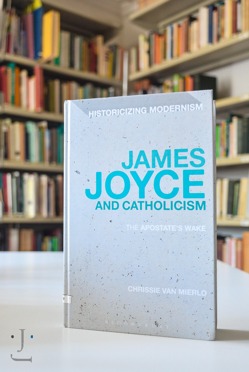
Date: 2017
ISBN: 9781472585943
Chrissie Van Mierlo
James Joyce and Catholicism
James Joyce and Catholicism is the first historicist study to explore the religious cultural contexts of Joyce’s final masterpiece. Drawing on letters, authorial manuscripts and other archival materials, the book works its way through a number of crucial themes: heresy, anticlericalism, Mariology, and others. Along the way, the book considers Joyce’s vexed relationship with the Catholic Church he was brought up in, and the unique forms of Catholicism that blossomed in Ireland at the turn of the last century, and during the first years of the Irish Free State. [Taken from: Bloomsbury]
Review
“This is a most engaging and impressive book. In terms of its critical focus and style, it should serve as a model for future monographs on the Wake. Van Mierlo manages to be clear and detailed, and yet she never loses sight of both the “human drama” of the Wake as well as its stylistic and formal charms and complexities.” – James Joyce Quarterly
“The author] deploys genetic scrutiny of [Joyce’s] source material … Van Mierlo supplies important historical and textual reasons for understanding the ‘saturation’ of Joyce’s work in ‘culture of Irish Catholicism that existed in Victorian and Edwardian Dublin’.” – Forum for Modern Language Studies [Taken from: Bloomsbury]
About the author
Chrissie Van Mierlo teaches at the School of Arts, English and Drama at Loughborough University, UK. Her research primarily concerns early twentieth century literary culture in Britain and Ireland, connections between religion, politics and literature, and links between literary and theological modernism. Her interest in texts and contexts is complemented by genetic research, and work in the area of modern manuscript studies. This extends to figures both inside and outside the canon, particularly James Joyce and the little-known Irish novelist, and former priest, Gerald O’Donovan (1871-1942). Additionally, Joycean interests have taken her in numerous directions, including a study of Joyce and Sir Thomas Malory, and a collaboration with Dr Sarah Davison on the project Intertextual Joyce, which examines the composition history of the “Oxen of the Sun” episode of Ulysses. [Taken from: Academia]
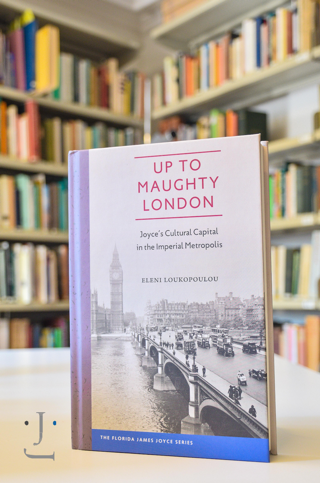
Date: 2017
Series: The Florida James Joyce Series
ISBN: 9780813062242
Eleni Loukopoulou
Up to Maughty London
The effect of Dublin—and other cities such as Trieste, Zurich, and Paris—on James Joyce and his works has been studied extensively, but few Joyceans have explored the impact of London on the trajectory of his literary career. In Up to Maughty London, Eleni Loukopoulou offers the first sustained account of Joyce’s engagement with the imperial metropolis. She considers both London’s status as a matrix for political and cultural formations and how the city is reimagined in Joyce’s work.
Loukopoulou examines newly discovered or largely neglected material, including newspaper and magazine articles, anthology contributions, radio broadcasts, sound recordings, and other writings published and unpublished. She also assesses the promotion of Joyce’s work in London’s literary marketplace. London emerges not just as a setting for his writings but as a key cultural and publishing vector for the composition and dissemination of his work. [Taken from: UPF]
Review
“An important reconceptualization of Joyce’s emergence in the literary marketplace of his time and beyond, and a must read for anyone interested in the creation, publication, and promotion of his works.”—James Joyce Literary Supplement [Taken from: UPF]
About the author
Eleni Loukopoulou is an independent scholar living in London. [Taken from: Academia]
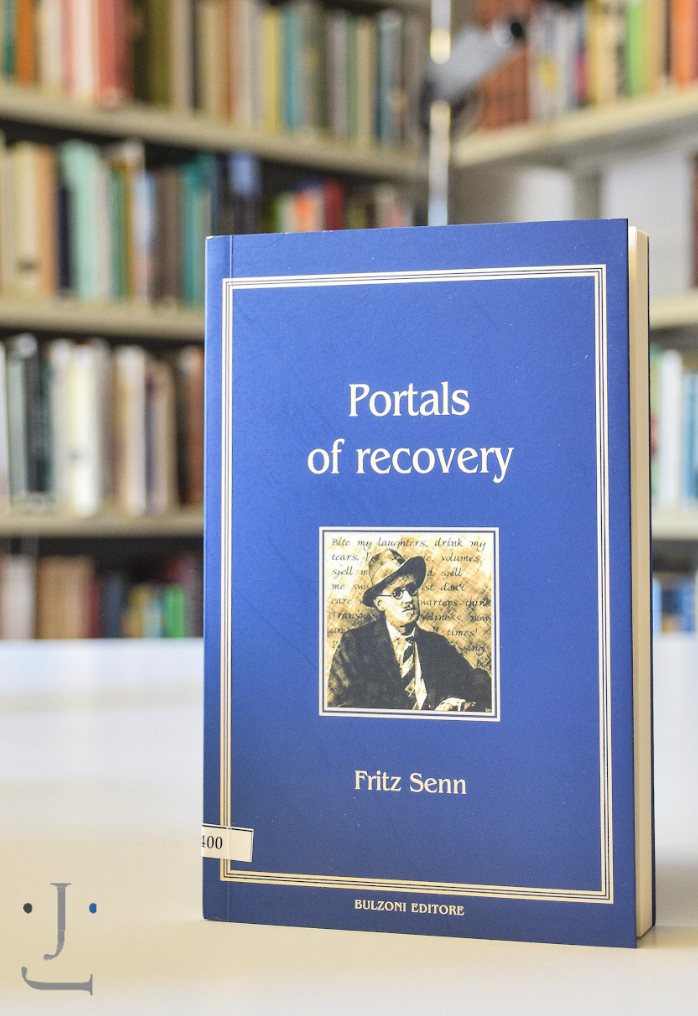
Date: 2017
ISBN: 9788868970796
Erika Mihálycsa (ed.) & Fritz Senn (author)
Portals of Recovery
Fritz Senn’s first book published by Piccola Biblioteca Joyciana, titled Ulyssean Close-ups (2007), introduced readers to a few pointed essays on Ulysses, written in a markedly Sennian fashion of super-close-reading. Senn’s approach to reading is philological, deeply discerning of words’ layered history, of their malleable networks of connotations, echoes, nuances, and of their cunning semantic and phonetic permutations. The present volume evolved from a few days that we spent with Fritz at the Zurich James Joyce Foundation, talking about all things Joycean and moving between issues of translation, reading, Homer, and many others. We amassed quite an archive of audio recordings, eventually transcribed, edited, and published in Scientia Traductionis. Sometime later, a modified version of our conversation was published in Papers on Joyce. Thus a few days expanded into a few years. But the topics kept resurfacing, older formulations demanding reformulations as Fritz kept writing, lecturing, and producing an ever-expanding archive of thoughts on topics that are central to his scholarship and to our academic interests. In this volume, Fritz shares some of the new results of his work by further elaborating on the Joycean text-world, translation, and on the broader issues of reading, interpretation, the workings of language(s), and on the capricious nature of “meaning.” [Taken from: IBS]
About the author
Erika Mihálycsa lectures on 20th and 21st century British and Irish literature at Babes-Bolyai University, Cluj, Romania. A Joyce and Beckett scholar, winner of multiple scholarships at the Zurich Joyce Foundation, she has read at Joyce symposia, at both the Trieste and Dublin Joyce schools, and acts as member of the editorial board of European Joyce Studies. She has mainly published on Joyce’s and Beckett’s language poetics, Joyce in translation, Beckett and the visual arts, as well as in the field of Modernism studies, Flann O’Brien, and translation studies. [Taken from: Academia]
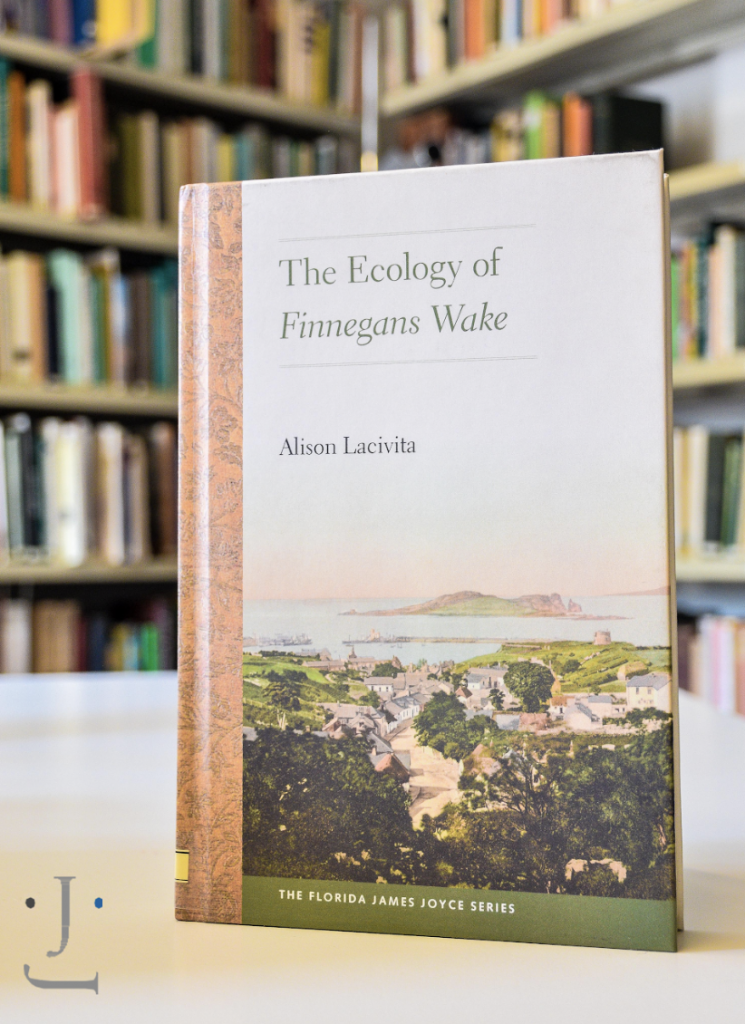
Date: 2015
ISBN: 9789928185099
Alison Lacivita
The Ecology of Finnegans Wake
In this book—one of the first ecocritical explorations of both Irish literature and modernism—Alison Lacivita defies the popular view of James Joyce as a thoroughly urban writer by bringing to light his consistent engagement with nature. Using genetic criticism to investigate Joyce’s source texts, notebooks, and proofs, Lacivita shows how Joyce developed ecological themes in Finnegans Wake over successive drafts.
Making apparent a love of growing things and a lively connection with the natural world across his texts, Lacivita’s approach reveals Joyce’s keen attention to the Irish landscape, meteorology, urban planning, Dublin’s ecology, the exploitation of nature, and fertility and reproduction. Lacivita unearths a vital quality of Joyce’s work that has largely gone undetected, decisively aligning ecocriticism with both modernism and Irish studies. [Taken from: UPF]
Review
“A remarkable work in three areas: the field of ecocriticism, to which it contributes a huge amount of historical and bibliographic information; the practice of genetic criticism in Joyce studies; and the exploration of ecological interests, themes, allusions, arguments, and manifestations in Finnegans Wake.”—Margot Norris, editor of the Norton Critical Edition of Joyce’s Dubliners
“A terrifically useful study. Makes the text shimmer with new possibilities by alerting the reader to Joyce’s interest in hydro-engineering, green belts, meteorology, polar exploration, and much more.”—Cheryl Temple Herr, author of Critical Regionalism and Cultural Studies
“Demonstrates the promise of an ‘urban ecological criticism’ that integrates the largely pastoral emphases of ecocritical inquiry into modernist studies.”—Thomas Jackson Rice, author of Cannibal Joyce [Taken from: UPF]
About the author
Alison Lacivita was an Assistant Professor of Modern English Literature, Department of English, at University of Southern Mississippi from 2013 to 2015, and now she is a Lecturer in English, Department of English, University of Colorado. [Taken from: Academia]
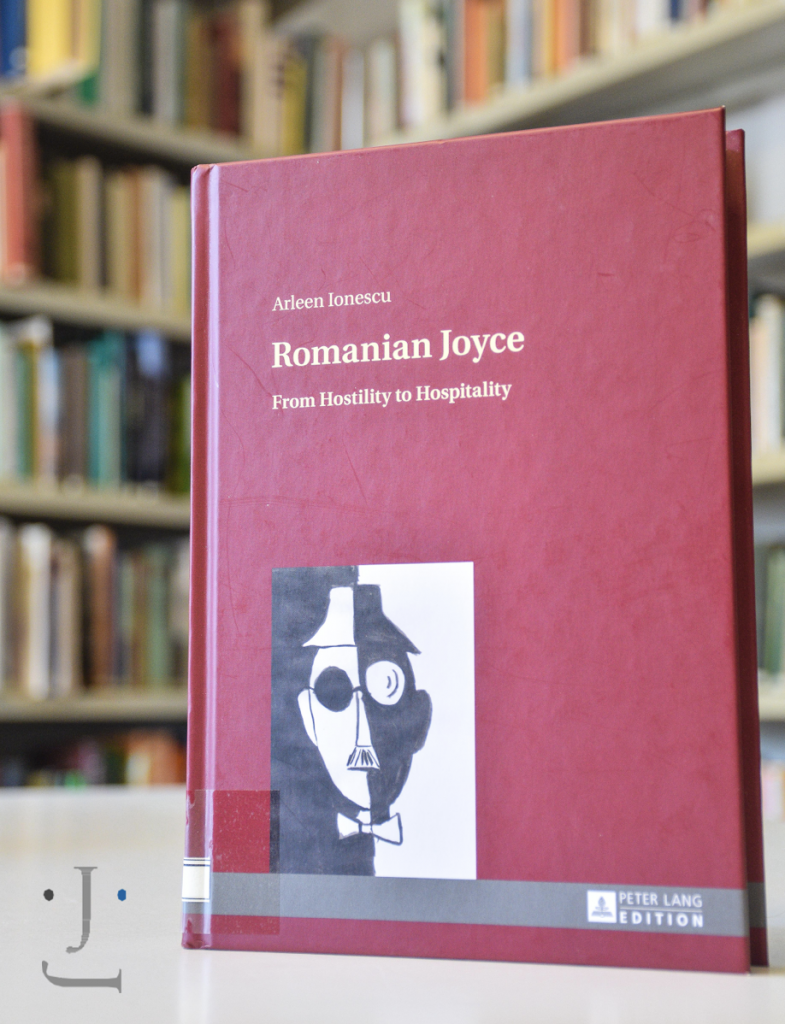
Date: 2014
ISBN: 9783631652916
Arleen Ionescu
Romanian Joyce: From Hostility to Hospitality
This study makes Romania’s largely unknown Joycean heritage visible to an international readership. Reviewing Joyce’s critical reception and translations, as well as the writer’s influence on Romanian prose, it brings Derrida’s notion of “hostipitality” to comparative literary and translation studies in order to theorize the impact of politics and ideology on fiction. After an original survey of the links between Romanian modernism/postmodernism and Western literature, it focuses on alternate trends of hostility and hospitality towards Joyce, especially his techniques and style. It examines how translations dealt with themes prone to communist censorship (politics, sexuality, religion, food), before discussing Joyce’s impact on Romanian writers such as Eliade, Biberi, Bălăiţă and Oţoiu. [Taken from: Peterlang]
Review
Throughout her book, Ionescu presents an impressive breadth of Romanian responses to Joyce in a particularly elegant and accessible style. Thanks to her excellent translations of Romanian criticism and literature, non-Romanian speaking readers can easily grasp Romanian wordplays and puns. Romanian Joyce is a fascinating study of the ways in which Joyce’s work diffuses into the Romanian literary scene, and it is a very welcome addition to Joyce studies, creatively extending the ways in which we think about Joyce’s reception, translations, and re-creation. – Ágota Márton, University of Oxford [Taken from: Muse]
About the author
Arleen Ionescu is Professor of English Literature at University of Poliesti (UPG) and Editor of the leading Romanian journal Word and Text. Her major research fields are Modernist prose and Critical Theory. She has published widely on Joyce as well as on Beckett, Blanchot and Derrida. [Taken from: Peterlang]
Other works related to Joyce
Concordanţe româno-britanice (Romanian-British Concordances), Ploieşti: Editura Universităţii din Ploieşti, 2004, ISBN 973-7965-84-1, (half of the book deals with Joyce scholarship in Romania, the other half deals with Woolf scholarship in Romania.)
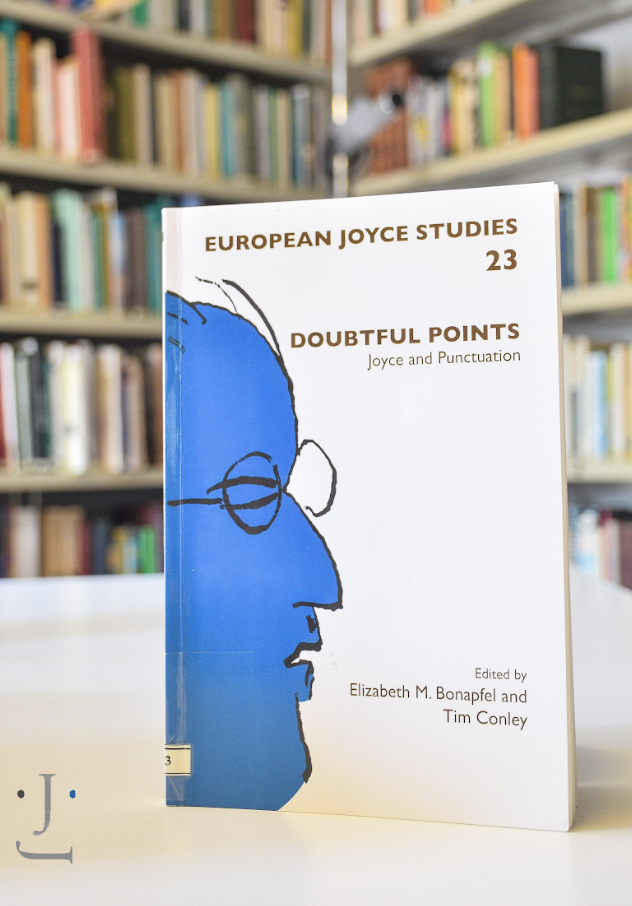
Date: 15 June 2015
ISBN: 9789401211833
Elizabeth Bonapfel (ed.)
Doubtful Points: Joyce and Punctuation
As unusual or esoteric as the subject might seem, Joyce’s punctuation offers a way to study and appreciate his stylistic innovations and the materiality of his textual productions. Joyce’s shunning of what he called “perverted commas” and the general absence of punctuation in Molly Bloom’s monologue are only the most infamous instances of a deeply idiosyncratic and changeable use of punctuation. The essays collected in Doubtful Points: Joyce and Punctuationinvestigate ellipses, parentheses, commas, dashes, colons, semi-colons, full stops, and even diacritics to explore a surprising array of contingent subjects: Joyce’s working relationships with publishers; questions of editing and translation; hermeneutic and epistemological dilemmas and reading strategies; linguistic nationalisms; the ideological effects of regulated writing; and more. This book is sure to edify and intrigue “fullstoppers” and “semicolonials” alike. [Taken from: Brill]
About the author
Elizabeth M. Bonapfel received her Ph.D. in American and English Literature from New York University in 2014. She is co-editor of Doubtful Points: Joyce and Punctuation (Rodopi Press, 2014). She received her B.A. from Haverford College. [Taken from: Fu-berlin]
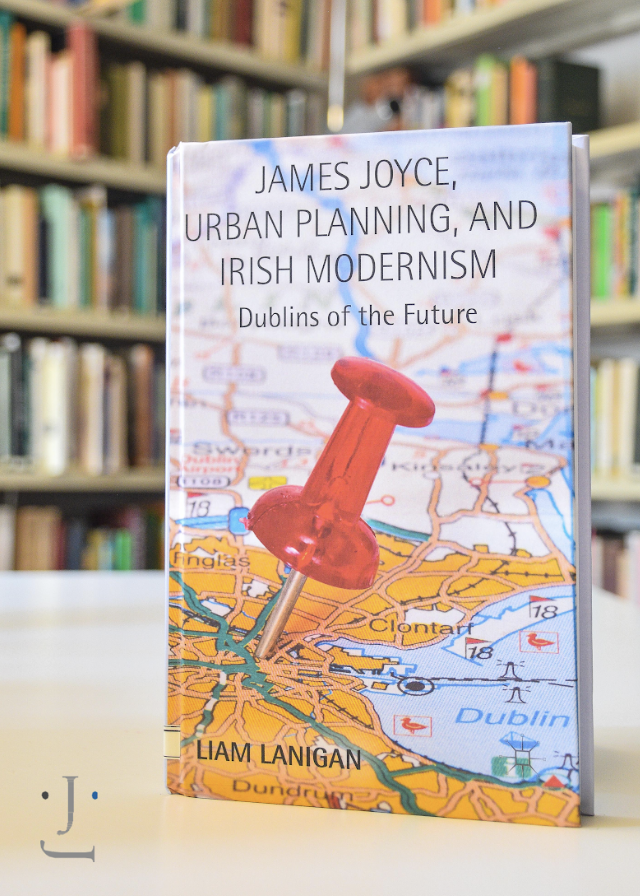
Date: 2014
ISBN: 9781137378194
Liam Lanigan
James Joyce, Urban Planning and Irish Modernism Dublins of the Future
Irish writing in the modernist era is often regarded as a largely rural affair, engaging with the city in fleeting, often disparaging ways, with Joyce cast as a defiant exception. This book shows how an urban modernist tradition, responsive to the particular political, social, and cultural conditions of Dublin, emerged in Ireland at this time. [Taken from: Palgrave]
Review
“James Joyce, Urban Planning, and Irish Modernism makes a worthy contribution to scholarship on the city of Dublin as central to ‘local,’ nationalist, and internationalist dimensions of Irish modernist production. Lanigan’s examination of the theory and practice of urban planning in the production of Irish literary culture (material, narratological, and conceptual) fills a significant gap in Joyce studies, modernist studies, and studies of modern Irish literature.” – Desmond Harding, Central Michigan University, USA. [Taken from: Palgrave]
About the author
Liam Lanigan is a visiting Assistant Professor of English at Texas Woman’s University. He has been a IRC Postdoctoral Research Fellow at University College Cork, Ireland and has previously taught at NUI Maynooth, the University of Kaposva’r, Hungary, and University College Dublin. [Taken from: Palgrave]
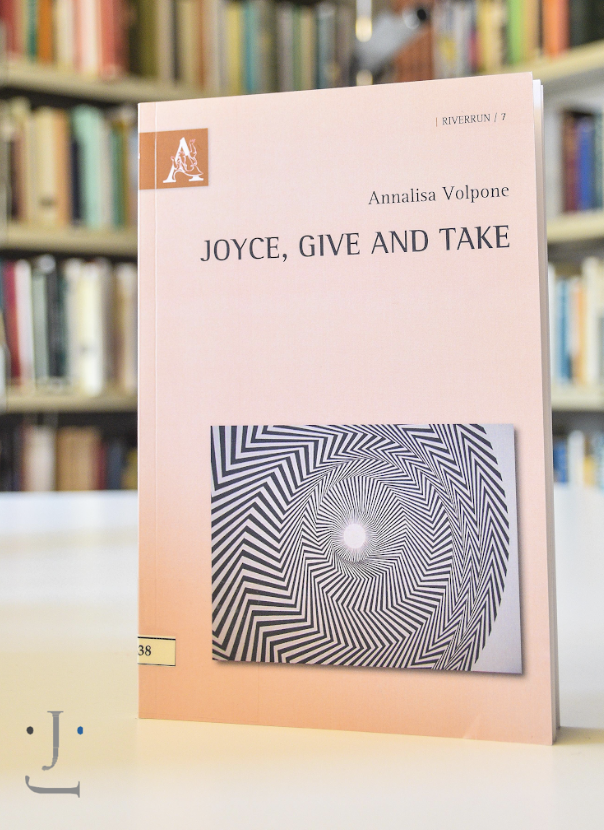
Date: 2012
ISBN: 9788854853256
Annalisa Volpone
Joyce, Give and Take
Joyce, Give and Take is a collection of four essays that comparatively explore the theme of influence in James Joyce’s works. The first two essays investigate the kind of influence the Italian humanist philosopher Giovanni Pico della Mirandola and the romantic poet, engraver and painter William Blake have exerted on the Irish writer. By contrast the other two focus on the influence that Joyce has exercised on the stateless writer Vladimir Nabokov, and on the postcolonial poet and playwright Derek Walcott. Such a wide perspective offers challenging insights into Joyce’s works, and into the kind of literary reciprocity that is enacted through his writing. On the one hand Joyce subsumes in his opus the Western literary canon, on the other he becomes an inescapable reference point for any writer who aims at representing modernity. [Taken from: Aracne]
Review
“The brevity and focus of this volume combined with the readability of Volpone’s writing style make her book a pleasure to read and, like attending a good series of engaging lectures, leave one revitalized with a desire to return to the old, familiar texts with fresh perspectives to explore further the literary relationships that she elucidates.” – Jeffrey Longacre in James Joyce Quarterly. [Taken from: Aracne]
About the author
Annalisa Volpone is an Associate Professor at the Department of Humanities, Ancient and Modern Languages, Literature and Cultures at the University of Perugia.
[Taken from: Unipg]
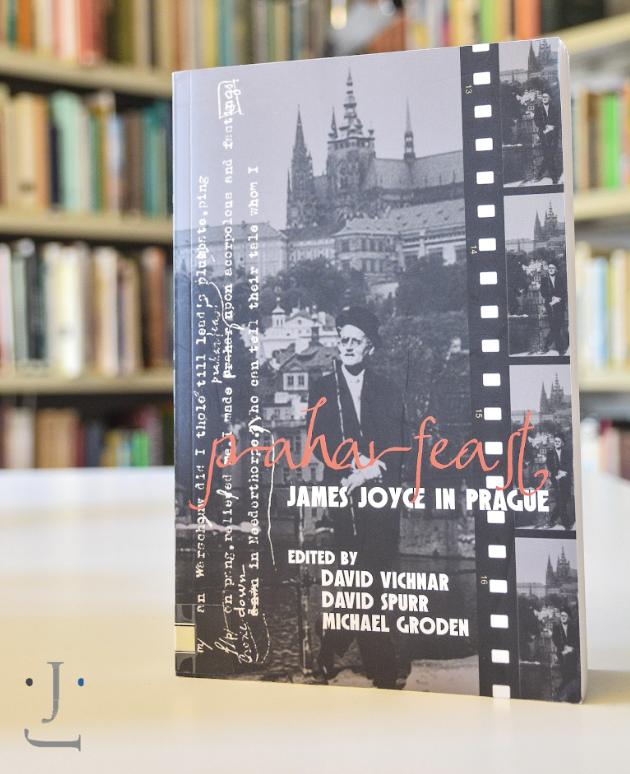
Date: 2012
ISBN:9788073084165
David Vichnar (ed.)
Praharfeast: James Joyce in Prague
The essay-collection will include 20-30 essays culled from the sessions, plenaries, and roundtable discussions of the XXIInd International James Joyce Symposium that took place in June, 2010, in Prague. The material is divided up into the following sections: the Joyce/Kafka Intertext, Structuralist Joyce Revisited, Joyce and the Prague Linguistic Circle , Advances and Challenges in the Genetic Criticism of Joyce, Remembering Joyce, Memoirs and Murmurs and Miscellaneous. [Taken from: CUNI]
About the author
David Vichnar holds a double PhD from Charles University and Université de la Sorbonne Nouvelle, Paris. Apart from lecturing at the DALC, he teaches at ECES and at the University of South Bohemia. He works as an editor, publisher and translator. His research and teaching areas include James Joyce studies, modernism & modernity, 20th century experimental literature, historical & postwar avant-garde, contemporary fiction, and historical & modern literary theory. [Taken from: CUNI]
Other works related to Joyce
David Vichnar is the editor of the online journal Hypermedia Joyce Studies, and of the essay collections Hypermedia Joyce (with Louis Armand; 2010), Thresholds: Essays on the International Prague Poetry Scene (edited, 2011) .
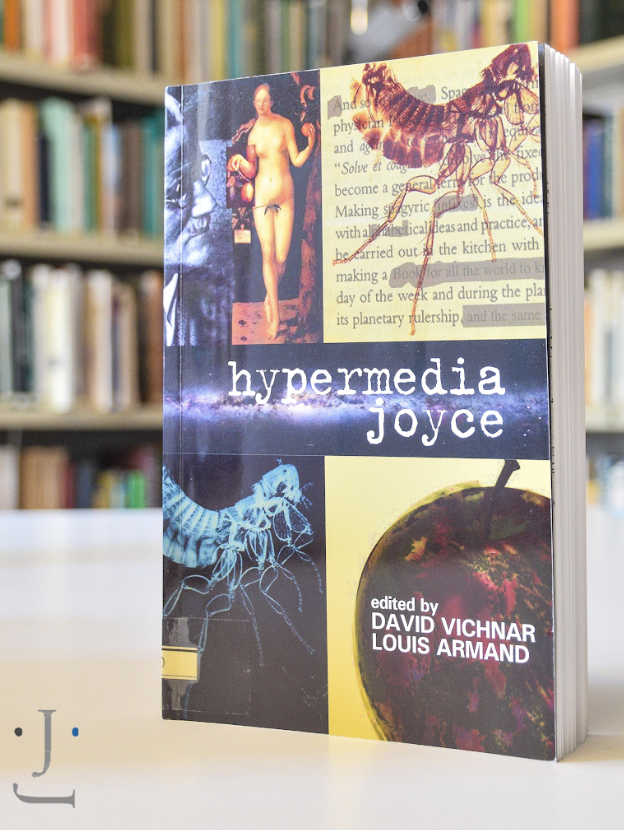
Date: 2010
ISBN: 9788073083144
David Vichnar (ed.)
Hypermedia Joyce
This volume brings together selected writings published in the seminal online journal HJS: Hypermedia Joyce Studies (founded in 1994), including groundbreaking work by Donald F. Theall, Darren Tofts, Louis Armand, Laurent Milesi, Andrew Norris, Valerie Benejam, Jed Deppman, Alexandra Dumitrescu, John Marvin, Alan R Roughley. [Taken from: Litteraria Pragensia]
Review
“Studies such as Vichnar’s are not only desirable for students new to theoretical Joyce, they are necessary. […] Vichnar has done what few critics are willing to do and has produced a book that presents an overview of Joyce theory with the necessary critical perspicacity to grant equal worth to each of these approaches. […] It is precisely in historicising the debates around theoretical Joyce that Vichnar’s book is most important.” – Arthur Rose, James Joyce Broadsheet) [Taken from: Litteraria Pragensia]
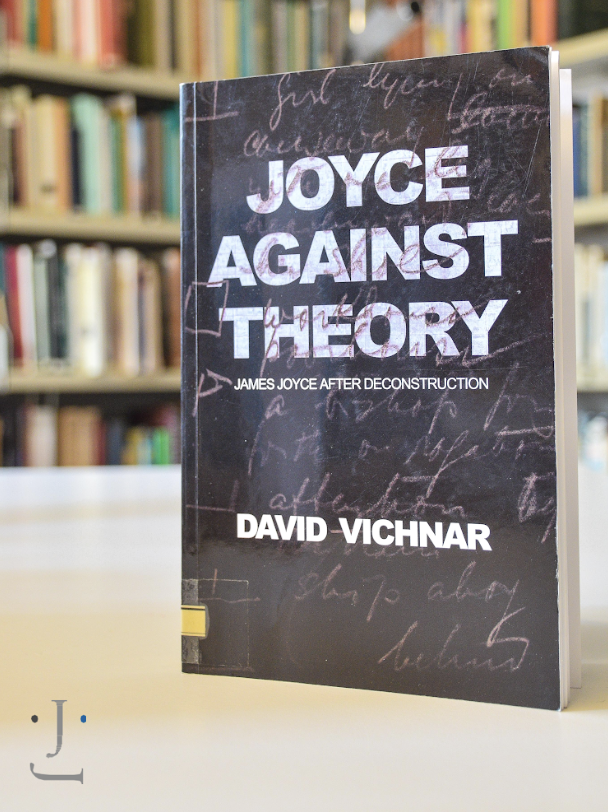
Date: 2010
ISBN:9788073083151
David Vichnar
Joyce Against Theory: James Joyce After Deconstruction
This study sets out to map the genealogy of a possible location of “Joyce” and “theory” in present-day James Joyce studies, demonstrating how the encounter between Joyce and theory changes the what and the how of reading, producing both a Joyce-again of theory and Joyce-inflected theory. [Taken from: Litteraria Pragensia]
Date: 2011
ISBN: 9780199693788
Scarlett Baron
‘Strandentwining Cable’: Joyce, Flaubert, and Intertextuality
‘Strandentwining Cable’ explores the works of two of the most admired and mythologized masters of nineteenth- and twentieth-century prose: Gustave Flaubert (1822-1880) and James Joyce (1882-1941). This book is a study of their literary relationship. In six chronologically ordered chapters it carries out a detailed intertextual analysis of Joyce’s engagement with Flaubert over the entire course of his writing career. In doing so it delineates the contours and uncovers the effects of one of the most crucially formative artistic relationships of Joyce’s life. [Taken from: Publisher]
Review
“Strandentwining Cable is a tremendously stimulating book. It has all the qualities Flaubertian and Joycean scholars (especially comparatists) will appreciate. It is meticulously researched, displays a profound knowledge of both writers, and presents critical arguments in a lucid and coherent manner, qualities which make it an immensely enjoyable read.” – Brigitte Le Juez, The Review of English Studies [Taken from: Reviews]
About the author Scarlett Baron is an Associate Professor at the University College London. She is a member of the Advisory Board of the James Joyce Quarterly and a Trustee of the International James Joyce Foundation. Scarlett’s principal research interests are in modernist and postmodernist literature in English and French (usually considered from a comparative perspective), and in the history of critical theory. [Taken from: UCL]
Date: 2016
ISBN: 978-90-04-31962-2
Ronan Crowley and Dirk Van Hulle (eds.)
New Quotatoes: Joycean Exogenesis in the Digital Age
New Quotatoes, Joycean Exogenesis in the Digital Age offers fourteen original essays on the genetic dossiers of Joyce’s fiction and the ties that bind the literary archive to the transatlantic print sphere of the late nineteenth and early twentieth century. Availing of digital media and tools, online resources, and new forms of access, the contributions delve deeper than ever before into Joyce’s programmatic reading for his oeuvre, and they posit connections and textual relations with major and minor literary figures alike never before established. The essays employ a broad range of genetic methodologies from ‘traditional’ approaches to intertextuality and allusion to computational methods that plumb Large-scale Digitisation Initiatives like Google Books to the possibilities of databasing for Joyce studies. [Taken from: Publisher]
About the editor
Ronan Crowley is FWO [PEGASUS]² Marie Skłodowska-Curie Fellow with the Centre for Manuscript Genetics at the University of Antwerp. He received his PhD in English from the University at Buffalo and, from 2014 to 2016, was Humboldt Research Fellow at the University of Passau. [Taken from: University of Antwerpen ]
Date: 2010
ISBN: 9780813042268
Vike Martina Plock
Joyce, Medicine, and Modernity
James Joyce’s interest in medicine has been well established–he attempted to embark on medical studies no fewer than three times–but a comprehensive assessment of the influence his interest in medicine had on his work has been lacking until now. Joyce, Medicine, and Modernity fills that gap as the first sustained study of Joyce’s artistic uses of turn-of-the-century medical discourses. In this wide-ranging study, author Vike Plock balances close readings of Joyce’s major texts with thorough archival research that retrieves principal late nineteenth- and early twentieth-century medical debates. The result is a fascinating book that details the ways in which Joyce reconciled, integrated, and blurred the paradigmatic boundaries between scientific and humanist learning. [Taken from: Publisher]
Review
“For everyone interested in Joyce and medicine–and everyone who reads Joyce should be–Vike Plock’s Joyce, Medicine, and Modernity is an excellent place to start. The scholarship is deep and sound, the commentary on Joyce often illuminating, the whole production eminently readable. Those interested in the scientific climate of modernism in general will also find much to learn from.” – John Gordon, Connecticut College
About the author
Vike Maria Plock is a lecturer at the University of Exeter. Her research interests include literary modernism and the cultural history of modernity.
Date: 2015
ISBN: 978-84-245-1314-6
Andrés Pérez-Simón
Drama, literatura, filosofía: Itinerarios del realismo y el modernismo europeos
Summary in Spanish on Publisher’s Site
Review
Review in English (no access on Journal’s website)
About the author
Andrés Pérez-Simón is a professor of Spanish Literature and Literary Criticism at the University of Cincinatti. He has published articles on literary theory, drama, novels and film. More information can be found on his personal website: www.andresperezsimon.com
Date: 2013
ISBN: 978-88-7395-877-2
Serenella Zanotti
Italian Joyce: A Journey through Language and Translation
James Joyce spent most of his life in voluntary exile. This condition allowed him to experience linguistic diversity and displacement, and is reflected in Joyce’s defamiliarizing use of language, polyglot experimentation and inherently translational writing. This volume goes to the roots of Joyce’s multilingualism. By focusing on previously unexplored or underexplored manuscript material, it investigates the writer’s relationship with the Italian language as well as the role of Italian in his works. It also addresses the issue of translation by analysing the way in which Joyce’s works have been translated into Italian. [Taken from: OUP]
About the Author
Serenella Zanotti is Associate Professor in English Language and Translation at the Department of Foreign Languages, Literatures and Cultures, Università Roma Tre (Italy). She has published widely on James Joyce, Ezra Pound and literary translation. Her other research interests include audiovisual translation, vague language and conversational narrative. [Taken from: BUP]
Date: 2004
ISBN:88-7999-829-3
Serenella Zanotti
Joyce in Italy: l’italiano in Joyce
James Joyce spent most of his life in voluntary exile. This condition allowed him to experience linguistic diversity and displacement, and is reflected in Joyce’s defamiliarizing use of language, polyglot experimentation and inherently translational writing. This volume goes to the roots of Joyce’s multilingualism. By focusing on previously unexplored or underexplored manuscript material, it investigates the writer’s relationship with the Italian language as well as the role of Italian in his works. It also addresses the issue of translation by analysing the way in which Joyce’s works have been translated into Italian. [Taken from: OUP]

Serenella Zanotti (ed.)
James Joyce’s Silences
In this landmark book, leading international scholars from North America, Europe and the UK offer a sustained critical attention to the concept of silence in Joyce’s writing. Examining Joyce’s major works, including Ulysses, Portrait of the Artist as a Young Man and Finnegans Wake, the critics present intertextual and comparative interpretations of Joyce’s deployment of silence as a complex overarching narratological strategy.
Exploring the many dimensions of what is revealed in the absences that fill his writing, and the different roles – aesthetic, rhetorical, textual and linguistic – that silence plays in Joyce’s texts, James Joyce’s Silences opens up important new avenues of scholarship on the great modernist writer.
This volume is of particular interests to all academics and students involved in Joyce and Irish studies, modernism, comparative literature, poetics, cultural studies and translation studies. [Taken from: Bloomsbury]
Review
The readings of silence and silences in Joyce’s work advanced in the essay collection James Joyce’s Silences (2018) demonstrate that the interpenetration of silence and speech in Joyce sustains important questions about the limits of language. the maintenance and imposition of silence in tension with articulated language e ect complex interventions with respect to the cultural and political signicance of discourse. e question of inter- pretation as a movement of translation soliciting the silent text into speech is central in the way Joyce scholars understand the resonance of silence as implicit communication. –Ian Tan [Taken from: Jstor]
Date: 2005
ISBN: 978-3-8260-3223-3
Catrin Siedenbiedel
Metafiktionalität in ‘Finnegans Wake’ Das Weibliche als Prinzip selbstreflexiven Erzählens bei James Joyce
This study combines the idea of Finnegans Wake as a metafictional self-reflexion with the theory that women are of particular importance in Joyce’s work. [Full summary in German at: Publisher]
About the Author
Catrin Siedenbiedel received her PhD in English Studies after studying English and German at the Universität Kassel and the University of Edinburgh. She has been teaching at the Hessenkolleg Kassel since 2003.
Date: 2008
ISBN: 978-884672133-4
Ilaria Natali
“That submerged doughdoughty doubleface“: Pomes Penyeach di James Joyce
A genetic study of the writing process of Pomes Penyeach by James Joyce, this book identifies the main tendencies in Joyce’s compositional methods. Particular attention is devoted to the inclusion of intertextual relationships in Joyce’s poems, which establish a web of connections involving Pomes Penyeach, A Portrait, Ulysses and Finnegans Wake. [Taken from: Research Gate]
About the author
Ilaria Natali has long been interested in genetic criticism and analysis of modern manuscripts, with particular attention to James Joyce’s poetry and prose works. She has also analysed the relationships between the history of madness and English literature, completing a study about eighteenth-century English poetry. So far, her research has been published in four books and various articles and has received two scholarly awards. Ilaria Natali currently works at the Dipartimento di Formazione, Lingue, Intercultura, Letterature e Psicologia, University of Florence. [Taken from: UniFI]

Ilaria Natali
‘The Ur-Portrait’: Stephen Hero ed il processo di creazione artistica in A Portrait of the Artist as a Young Man
As this study reveals, the published text of A Portrait of the Artist as a Young Man is the result of a process that is far from being linear: rather, it is dotted by a stream of compositional impasses, ruptures and junctions, where authorial choices are influenced by various external factors. [Taken from: Research Gate]
Online Access to Full Book: UniFI
Date: 2010
ISBN: 978-8498302509
M.ª Luz Suárez Castiñeira (ed.), Asier Altuna García de Salazar (ed.), Olga Fernández Vicente (eds.)
New Perspectives on James Joyce Ignatius Loyola, make haste to help me!
This publication gathers a selection of papers delivered at the 20th Conference of the James Joyce Spanish Society. The book includes studies on relevant issues still raised by Joyce’s work, such as Joyce’s handling of time and memory, Joyce and the Jesuits, Joyce and literary connections, Joyce in translation, new eco-critical readings of Joyce’s work, Joyce in the light of textual linguistics or how to render Joyce more accessible. [Taken from: Publisher]
Review
[T]here is much to admire in this eclectic volume that fosters inquiry, favors critical exchanges, and compellingly demonstrates once again the intense and lively interest that Spanish scholarship has shown in Joyce for many years now. –M. Teresa Caneda Cabrera, University of Vigo [Full review at: Muse]

Olga Vicente (ed.), Mari Mar Boillos Pereira, Richard Jorge Fernández, Paulo Kortazar Billelabeitia (co-eds.)
Joyce’s Heirs: Joyce’s Imprint on Recent Global Literatures
The figure of James Joyce is intangible, an almost all-encompassing figure whose height and breadth bypasses countries, continents and even time constraints and limitations. Many writers have confessed to their being indebted to his works and readings, as have many scholars over the years. However, not everything said about Joyce has always been praising: his contemporary D.H. Lawrence is known to have criticised him on the basis of his Biblical references or his journalistic-indebted narrative, which he defined as “old and hard-worked staleness, masquerading as the all-new”. Many more writers have, however, found inspiration in Joyce’s narratives and stories than not. Admirers and detractors aside, it is clear that Joyce’s figure is larger than life. Almost as a reversed parallelism to D.H. Lawrence’s criticism, Joyce can be pronounced a figure of almost Biblical proportions. One may like him or despise him; however, no one is left indifferent by it. This lofty, academic assertion has its more mundane mirror image in the widespread myth that all Dubliners, upon entering a conversation of literary dimensions, will firmly state their own opinions on the Dubliner’s work, even discuss some of his passages, only to later acknowledge (perhaps in the intimacy of one of those public houses Joyce himself so well depicted) that they have not read the book at all. This, rather than taking away literary value form Joyce’s work, proves how all-encompassing and ever-arching his work can be. Discussed alike by high-ranking academics and Dublin taxi drivers, Joyce’s oeuvre is an ever-continuing metaphor of life and its essence at the core of the city which he left but always inhabited. [Full Text Online]
City of Zurich Scholarships
Date: 2004
ISBN: 1-84351-052-9
Christa-Maria Lerm Hayes
Joyce in Art: Visual Art Inspired by James Joyce
Joyce in Art accompanied the exhibition of the same title (at the RHA in Dublin), curated by the author for 16 June 2004, the centenary of Bloomsday. It is the first historical account of visual art inspired by James Joyce. At once a comprehensive and selective study, it focuses on the most original, provocative and best-informed artists who took an interest in Joyce. […] The book will interest scholars of Joyce, art historians and anybody studying interdisciplinary phenomena, word and image relationships, the workings of artistic inspiration and Irish subject matter. [Taken from: Lilliput Press]
Review
“Joyce in Art is an absolute must for all Joyceans, and of immense interest to anyone working in Word and Image studies.” -Peter de Voogd [Full Review]
About the Author
Christa-Maria Lerm Hayes is a lecturer in Theoretical and Historical Studies in Visual Art at the University of Ulster in Belfast. She studied at Heidelberg, London, Bonn and Cologne before researching Joyce-inspired art as a James Joyce Foundation Scholar in Zurich and moving to Ireland. She is author of James Joyce as a Source of Inspiration for Joseph Beuys (2001), and curator (with Patrick T. Murphy, director of the Royal Hibernian Academy) of the exhibition ‘Joyce in Art: Visual Art Inspired by James Joyce’, part of the ReJoyce Dublin 2004 Festival.
Date: 2000
ISBN: 978-0-7914-4613-3
Christi L. Burns
Gestural Politics: Stereotype and Parody in Joyce
Gestural Politics explores James Joyce’s use of parody and humor in his representation of women, gays, and Irish nationalism. Author Christy L. Burns also discusses how Joyce’s complex attitude toward parody and stereotyping is related to his aesthetic vision. She offers a comprehensive overview of all of Joyce’s writings with a special emphasis on Portrait of the Artist as a Young Man, Ulysses, and Finnegans Wake. [Taken from: Suny Press]
Review
“Burns skillfully weaves together an ambitious volume that, instead of following a simple chronological path through Joyce’s work, deals in turn with a number of important topics: gesture, femininity, homosexuality, and nationalism, ending with an essay on language and typography in Finnegans Wake. All of these topics have been much discussed in Joyce studies, and it is a tribute to Burns’s originality that she has new light to cast on all of them. Her attention to the humor of Joyce’s work is also to be applauded.” – Derek Attridge, editor of The Cambridge Companion to James Joyce
About the author Christy L. Burns is Associate Professor of English at the College of William and Mary.
Date: 1997
ISBN: 978-0813015347
Marlena Corcoran (Ed.) and Jolanta W. Wawrzycka (Ed.) Gender in Joyce (Florida James Joyce Series)
A variety of theoretical orientations distinguishes this collection of essays on gender in Joyce. Contributors explore exciting new areas in feminist and gender studies on subjects as disparate as Joyce’s use of fraternal incest, the cultural code of femme fatale, androgyny and the abject mother, and Mariolatry. This collection will be of interest not only to Joyceans but to anyone with an interest in fresh approaches to gender and cultural studies. [Taken from: Google Books]
Review
“Varied and insightful views on the function of gender within Joyce’s canon. . . . Presents innovative views from a range of perspectives while avoiding prescriptive or programmatic readings. ” – Michael Patrick Gillespie, Marquette University
About the Editor
Marlena G. Corcoran is an independent scholar associated with the University of Iowa and Harvard University’s Center for Literary and Cultural Studies. She has published numerous articles on Plato, Aristotle, Kant, Rushdie, and Joyce, as well as translations from French and German.
Date: 1994
ISBN: 978-90-5183-604-2
Andrew Treip (Ed.) “Finnegans Wake: ‘Teems of Times'”, European Joyce Studies 4
This is a collection by diverse hands on the thematic, conceptual and contextual impact of time in and around Joyce’s Finnegans Wake. In keeping with the practice of the Zürich James Joyce Foundation workshops, from one of which, over Easter 1992, the collection developed, many essays emphasize the local temporal textures of Finnegans Wake through close readings of individual passages. However, this does not preclude fruitful interaction with wider contexts and theoretical concerns. Two articles are detailed studies of social and political contemporary contexts with which Joyce’s last work was in dialogue. Three more explore philosophical, psychological and scientific theories of time which Joyce exploited and transformed in his text. Two essays relate Finnegans Wake to discussions of time in French feminist and deconstructive theory: and finally, four essays concentrate on the temporality of composition – two apiece on each of the chronology of Joyce’s early note-taking and draft processes. The collection should prove interesting to all readers and critics of Joyce as well as to critics concerned with the problem of historicizing and contextualising the temporally disruptive texts of high modernism and early postmodernism. [Taken from: Brill]
Other Scholarships
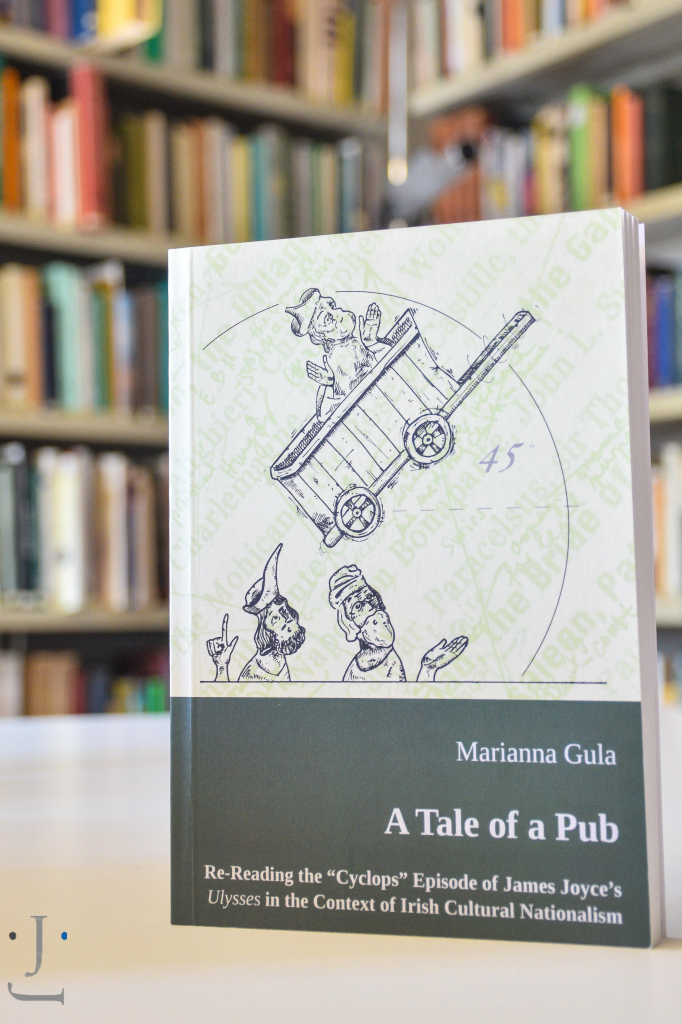
Date: 2012
ISBN: 9633182859, 9789633182857
Marianna Gula
A Tale of a Pub: Re-Reading the “Cyclops” Episode of James Joyce’s “Ulysses” in the Context of Irish Cultural Nationalism
Marianna Gula’s A Tale of a Pub: Re-Reading the “Cyclops” Episode of James Joyce’s “Ulysses” in the Context of Irish Cultural Nationalism starts from this premise as it looks to resituate the episode within the imagined community of colonial Ireland. Gula’s introduction acknowledges the well-worn critical path on which the book embarks in reading “Cyclops,” yet this work is set apart from previous efforts by its singular episodic focus and expanded historical scope. The text ultimately reconsiders the “Cyclops” episode within a cultural-nationalist milieu that is significantly broader than the 1890s Celtic Revival. Fusing theories of modern nation-building, Irish studies, and the postcolonial turn in Joyce criticism guided by, among others, Vincent J. Cheng, James Fairhall, and Emer Nolan, Gula assumes the mindset of an “archaeologist”. Her excavations into numerous social, cultural, and political strata and, above all, Ulysses, yield some fascinating finds. [Greg Winston, JJ Quarterly, 51. 2-3, p. 520-525]
Review
“A Tale of a Pub is well organized, deeply researched, and, all in all, remarkably successful in its sustained concentration on a single episode of Ulysses. Gula holds one’s interest through her clear engagement with theoretical and critical texts that support her remarkably detailed close readings of the episode. And perhaps above all, there are the historical connections and cultural discoveries, or what she aptly terms in the preface her “relentless spadework” (ix). Having cultivated a rich and readable volume, she should be most pleased with her labors in making the Joycean garden bloom.” — Greg Winston [Muse]
About the Author
Marianna Gula has been an instructor in the Institute of English and American Studies since 1993. Her primary fields of interest are Irish literature and culture, particularly James Joyce and contemporary Northern Irish film and fiction, as well as literary translation. She gained her PhD in 2003. She has been a member of a translator team thoroughly reworking (re-translating and re-editing) the canonical Hungarian translation of Joyce’s Ulysses (published in 2012). Her current research focuses on the politics and ethics of remembering in the context of post-Belfast Agreement Northern Irish film and fiction.
Date: 2006
ISBN: 9783936384925
Katharina Hagena
Was die wilden Wellen sagen: Der Seeweg durch den Ulysses.
Although set in a city, the sea is an ubiquitous presence in Ulysses. Katharina Hagena’s publication offers an adventorous and highly pleasurable journey through Joyce’s work. [Full summary in German at: Fischer Verlag]
Review
“Joyce-Expertin Katharina Hagena, die sich ganz der Ergründung des Ulysses verschrieben hat, eröffnet mit dem Seeweg eine ebenso abenteuerliche wie höchst vergnügliche Reiseroute durch das gewaltige Jahrhundertwerk.“ –Weser-Kurier
About the Author
Katharina Hagena has been studying the works of James Joyce for over ten years. She received a scholarship of the Zurich James Joyce Foundation and was employed as a lecturer at Trinity College in Dublin. Now she teaches English literature at the University of Hamburg and is currently working on a publication on towers in literature.
Date: 1996
ISBN: 978-3-631-30334-4
Katharina Hagena
Developing Waterways
This study offers a possible route through the linguistic labyrinth of Ulysses: The Waterway.
[Table of Contents and German Summary: Peter Lang]
Review
“Katharina Hagena’s Developing Waterways deals with the sea as a language-formative element in James Joyce’s Ulysses. Hagena’s style is as fluid as her topic, and […her] book is refreshing and, at times, even amusing to read.” – Friedhelm Rathjen, James Joyce Quarterly [on JSTOR]
Date: 2001
ISBN: 9629370700
Di Jin
Shamrock and Chopsticks: James Joyce in China: A Tale of Two Encounters
This book is written by Professor Jin Di, whose translation of Ulysses into Chinese is now commonly recognized as a substantial, even monumental, work. The text contains three parts: Part I provides an informative context for the Chinese Ulysses and the fascinating story of the origins of Jin’s project. In Part II, there is wisdom to offer on the principles of translation, reflecting from the detailed account of the problems on bridging linguistic and cultural barriers during the translation process. The last part recounts the encounter between James Joyce and Chinese culture. This book speaks to readers across a broad variety of disciplines, from Joyceans, literature enthusiasts and translators, to sociologists, communication researchers and general readers. [Taken from: City U Press]
Review
“The publication of Jin Di’s informative and perceptive book Shamrock and Chopsticks, an enthralling collection of essays on his sixteen-year groundbreaking work on the translation of James Joyce’s Ulysses into Chinese, initiated speculation and interest”. –Patricia Prime [Babel, Volume 51, Issue 4]
About the Author
Jin Di is a Chinese translator. He was the first Chinese translator who translated James Joyce’s Ulysses into the Chinese language, a project that took 16 years to complete. In 1978, at the invitation of the Chinese Academy of Social Sciences, he began translating James Joyce’s famous novel Ulysses. In 1982, he went to live in the United States and continued his translation of Ulysses. In 1993, Taiwanese Jiuge Publishing House published Ulysses (Volume 1), and he became the first Chinese translator of Ulysses.
Other works related to Joyce Ulysses (尤利西斯 English to Chinese)
This page was complied by Sarah d’Episcopo and Jailu Zhu as part of project with the English Department at the University of Zurich.
